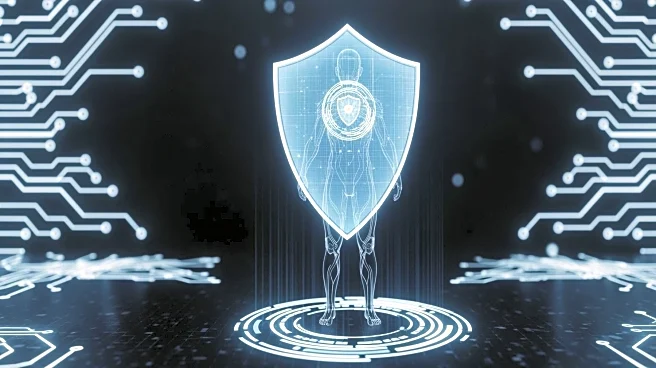What's Happening?
OpenAI has introduced new measures to its AI video platform, Sora 2, following concerns raised by actors and industry representatives about the unauthorized use of their likenesses. Bryan Cranston, along
with SAG-AFTRA and agencies like CAA and UTA, expressed apprehension when the platform initially allowed users to create digital replicas of actors without consent. In response, OpenAI has updated Sora 2 to include opt-in protocols, ensuring performers can choose whether their likenesses are used. This move comes after a video surfaced showing a digital interaction between Michael Jackson and Cranston's character from 'Breaking Bad,' which was flagged by Cranston's representatives. OpenAI's CEO, Sam Altman, emphasized the company's commitment to protecting performers' rights, aligning with the No Fakes Act, a proposed federal law aimed at banning non-consensual digital replicas.
Why It's Important?
The implementation of these safeguards by OpenAI is significant for the entertainment industry, as it addresses the growing concerns over AI's potential to misuse actors' likenesses. This development highlights the importance of protecting intellectual property rights in the digital age, where AI technologies can easily replicate and manipulate images and voices. By allowing performers to opt-in, OpenAI sets a precedent for ethical AI use, potentially influencing other tech companies to adopt similar practices. The move also supports SAG-AFTRA's legislative efforts to pass the No Fakes Act, which seeks to establish federal protections for actors' likenesses, thereby strengthening their control over personal and professional identities.
What's Next?
With OpenAI's commitment to an opt-in protocol, the entertainment industry may see increased collaboration between tech companies and actors to ensure ethical use of AI technologies. SAG-AFTRA and other industry stakeholders are likely to continue advocating for the No Fakes Act, aiming to secure federal protections for performers. As AI technology evolves, ongoing dialogue between tech developers and the entertainment industry will be crucial to address new challenges and safeguard creative rights. Additionally, other AI platforms may follow OpenAI's lead, implementing similar measures to protect intellectual property and maintain industry trust.
Beyond the Headlines
The ethical implications of AI's ability to replicate human likenesses extend beyond the entertainment industry, raising questions about privacy and consent in digital spaces. As AI technologies become more sophisticated, the potential for misuse increases, necessitating robust legal frameworks to protect individuals' rights. This development may prompt broader discussions on digital ethics, influencing policy-making and public perception of AI. Furthermore, the collaboration between OpenAI and industry stakeholders could serve as a model for other sectors facing similar challenges, fostering a culture of responsibility and transparency in AI development.











